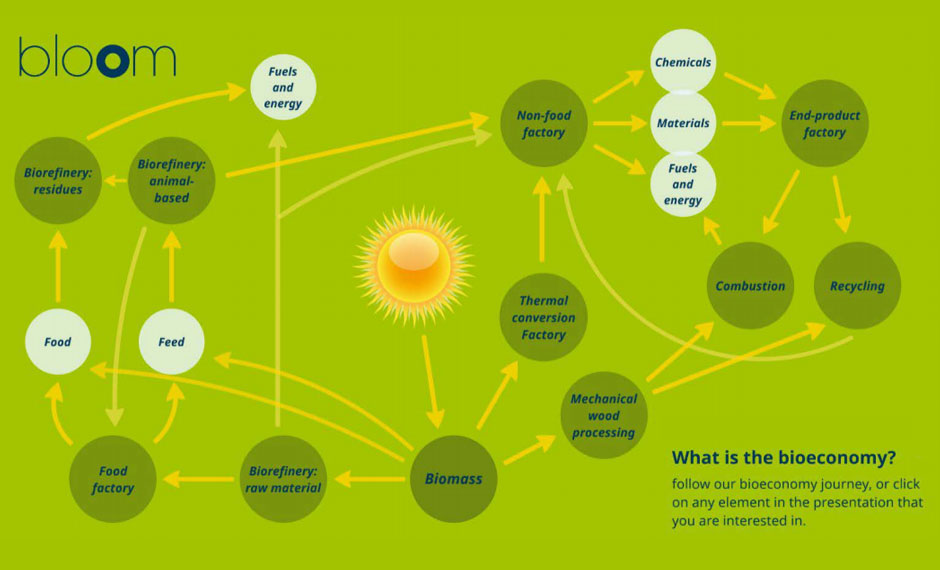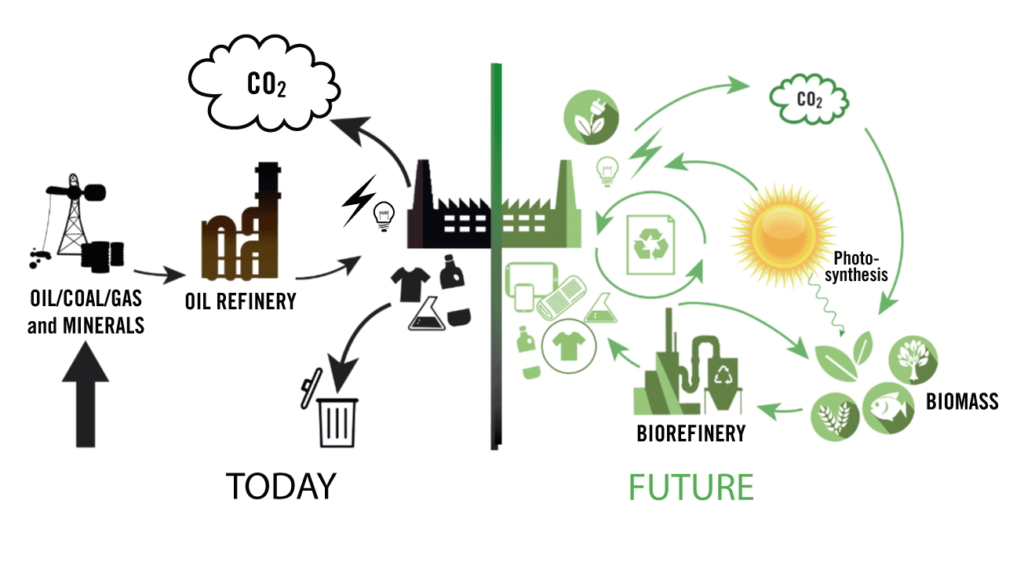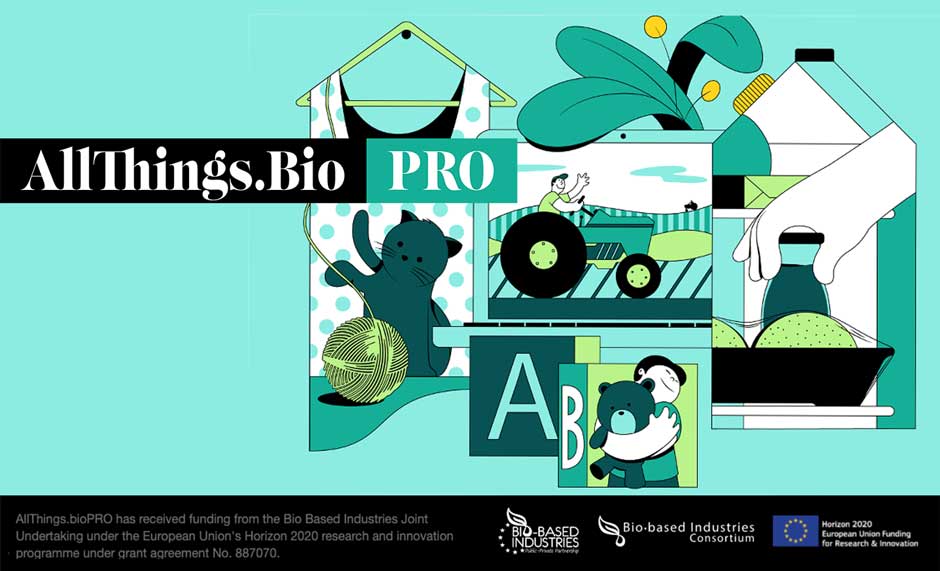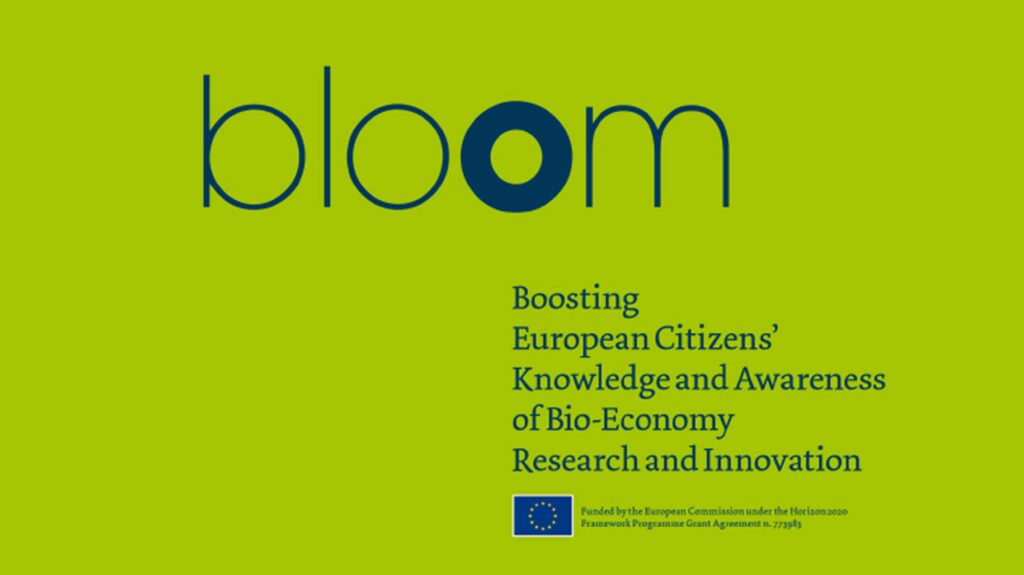To be able to communicate about the bioeconomy effectively and design appropriate activities, everyone needs to have a common understanding of what the bioeconomy is.
One definition can be:
“The bioeconomy covers all sectors and systems that rely on biological resources (animals, plants, micro-organisms and derived biomass, including organic waste), their functions and principles.
It includes and interlinks: land and marine ecosystems and the services they provide; all primary production sectors that use and produce biological resources (agriculture, forestry, fisheries and aquaculture); and all economic and industrial sectors that use biological resources and processes to produce food, feed, bio-based products, energy and services.
To be successful, the European bioeconomy needs to have sustainability and circularity at its heart. This will drive the renewal of our industries, the modernisation of our primary production systems, the protection of the environment and will enhance biodiversity.”
(European Commission: Europe’s Bioeconomy Strategy 2018)

Based on discussions at the Blooms Swedish co-creation workshops, we have developed a working definition of the concept:
THE BIOECONOMY is economic and societal development based on RENEWABLE RESOURCES. It encompasses products/services made from natural resources, bio-based materials and processes (land, forest, sea and fresh water). The bioeconomy also includes trade in ecosystem services. The bioeconomy REQUIRES changes to processes and skills in society. A transition to the bioeconomy CAN lead to sustainable societal development and to a circular economy.
THE BIOECONOMY is about NOT using finite resources such as fossil raw materials and minerals. It does NOT need to be small-scale, ecological, circular, sustainable, non-polluting or likeable!
The main reason that the bioeconomy is gaining attention is that existing production practices contribute to serious environmental and climate problems. Ongoing fossil fuel extraction releases more carbon into the atmosphere, contributing to the well-known greenhouse effect. The bio-based economy focuses on substituting fossil fuels in combustion and material production with renewable biomass.
The bioeconomy as a whole system also encompasses food and feed production – another major source of emissions. A circular bioeconomy has the potential to contribute to more sustainable practices and to mitigate climate change with techniques ranging from simple ones such as re-using waste generated in one process as a resource in the manufacturing of new products, to highly complex ones like building new materials such as bioplastics from components of the original biomass. The aim is always to maximise the efficiency of material flows, especially of carbon.
- A renewable resource is a natural resource that empties more slowly than it is replenished. The resource must have ways to recover in order to be called renewable. However, they can become non-renewable if they are used to a greater extent than nature’s ability to recreate them.
- A CIRCULAR bioeconomy can contribute to more sustainable methods and to reduce climate change. This can be done from very simple technology – such as reusing production waste as resources in the manufacture of new products – to very advanced technology – such as producing new materials, such as bioplastics, from components of the original biomass. The aim is always to achieve as efficient material flows as possible, especially in the case of coal.
- Our current financial system can be described as a straight line, LINEAR ECONOMY. Since the industrial revolution, economic growth has gone hand in hand with increased use of natural resources and increasing waste.


In order for an economy to become circular, major changes in society are required and BIOECONOMY can be part of the solution.
Read about The role of Bioeconomy in Sustainable development here.
Bioeconomy Key Messages:
The BLOOM project has been developing a set of key messages for different aspects of the bioeconomy, sustainable development and climate change in an easy to understand and accessible way. The key messages serve the purpose of our main mission: to boost people’s awareness of and knowledge of bioeconomy. Look at them here.
What are biobased products?
Read more about Bioeconomy in our daily life here.
Ethical Questions: Creating a Space for Dialogue on Bioeconomy
If the demand for certain natural resources such as wood increases, how are we going to make sure that this does not increase the pressure on forest ecosystems and that the wood comes from sustainable forest management
practices?
Increased demand is very likely to also increase the imports of biomass. In doing so, how can we avoid exacerbating issues of sustainability in supplier countries? How can we find new balances within the planetary boundaries and work on integrated and holistic visions and strategies?
As in every change of a complex system, there are potential side effects and ethical questions that need to be addressed. Under the term “bioeconomy” some controversial approaches are also being discussed that might not be in line with sustainability goals and/or raise issues with ethical implications. Some of these questions are related to topics like genetic modification in production processes, the use of fertilizers, or the potential increase of the demand for some natural resources.
The BLOOM Approach
Bloom is addressing these questions as part of the activities of its bioeconomy hubs. The main objective of the project is to establish open and informed dialogues, co-created by European citizens, civil society, bioeconomy innovation networks, local research centres, business and industry stakeholders and various levels of government. Bloom is creating spaces for the needed debate on preferences and values concerning the bioeconomy; for interaction and exchange of information, knowledge, meaning and aspirations, with the aim of establishing consensus on how a bioeconomy can be realized.
AllThings.Bio
The EU-funded Horizon 2020 project AllthingsBioPRO aims to engage citizens on the topic of the bioeconomy. As part of the project, a serious game will be developed to foster citizens’ awareness, participation and co-creation regarding aspects of the bio-based industry.



